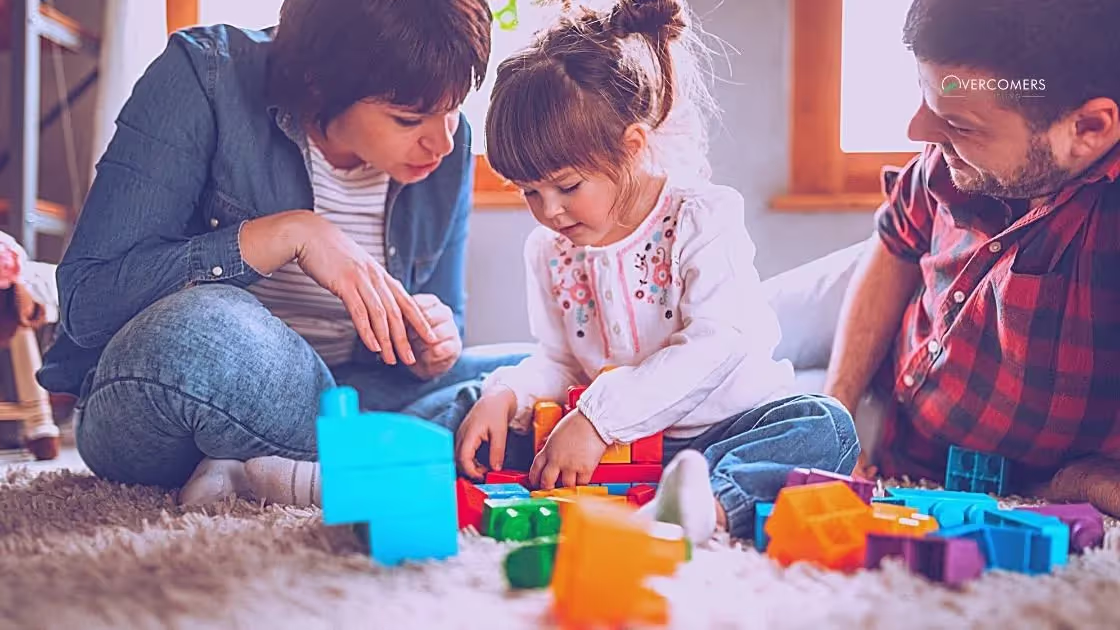The parent-child relationship is an important factor that influences a child's mental development and well-being. Active involvement in your child's life...

The parent-child relationship is an important factor that influences a child's mental development and well-being. Active involvement in your child's life deepens your parent-child bond, gives them a sense of security, builds their self-esteem, and improves their social, cognitive, and emotional development. Thus, as a parent, it is crucial to show more interest in your child and provide support to build a strong relationship. One primary reason to show interest in your child is to make them feel loved. Children need love to have proper mental growth and development. It makes them feel secure and valued, boosting their self-esteem. Children who have a loving relationship with their parents grow to develop healthy mental well-being. Also, you need to show interest to learn more about your child. They develop new interests, habits, behaviors, and dreams as they grow older. Often, their behavioral patterns and habits can be influenced by others, so it's important to understand and learn about them. Similarly, showing interest in your child can influence their academic performance. Your child's life at school is just as important as their life at home. Being actively involved in your child's learning ability, relationships at school, struggles, and weaknesses will potentially increase their academic performance.
Continue this overview to learn why it is crucial to show more interest in your child:
The parent-child relationship lays the foundation for a child's perception of intimate relationships in the world. It shapes the child's behavior, thought process, personality, and choices. The deeper the parent-child bond, the better a child will grow into a happy individual with vital life skills. To deepen your parental bond, it's essential to show more interest in your child. One way to strengthen this bond is by having honest talks with your child. Set aside time for one-on-one discussions, allowing them to express their thoughts and feelings. Encouraging your child to talk about their emotions will teach them to manage their feelings as they grow, while also deepening the connection. Constantly reminding your child of your unconditional love, care, and support will enhance the emotional bond, boosting their self-confidence and self-esteem. A lack of love and connection between parent and child can lead to unhealthy dependency, poor social and communication skills, and psychological issues as the child ages. Hence, parents must strive to form a secure, loving bond with their children.
While you might know your child's allergies, favorite food, and sports offhand, there is still so much more you can learn from them if you show genuine interest. As children grow, they discover their hobbies, talents, dreams, and sense of self. To truly understand them, it's important to show more interest in their evolving interests and experiences. For example, you can ask your child questions that spark deeper conversations—about their favorite character, best TV show, best friend, or how they feel about different situations. This will help you understand them better. Additionally, having fun with your child by engaging in activities they enjoy, playing, or simply being silly together can strengthen your bond. Engaging in their favorite sports or hobbies provides opportunities for connection and trust. It's important to remember that parents don't know everything about their children, as children also experience life outside the home, interacting with various people and circumstances. Showing interest in your child is a powerful way to connect and learn more about them.
Although children are born with different learning abilities, parents can greatly influence their child's academic potential. Showing interest in your child's studies, learning styles, and communication skills helps improve their learning ability and overall academic performance. One key reason to show more interest in your child is to enhance their academic progress. Regularly communicating with your child about their experiences at school can provide valuable insights into their strengths and areas that may need support. You can ask questions about their day—such as their favorite subject, challenges they faced, or what made them happy or sad—this helps you understand their academic needs and emotions. Creating a structured after-school routine is also essential. Setting aside time for play, homework, and sleep ensures a balanced life. Playtime could include watching cartoons, engaging in sports, or playing games, while sleep is critical for brain development and overall functioning. As a parent, your guidance is vital in supporting your child's education and encouraging them to achieve their best.

The ability to interact with people, communicate effectively, resolve conflict, and manage relationships are essential social skills that can contribute to a child's happiness and success. Parents play a crucial role in developing these skills, and showing more interest in your child is key to helping them build confident social behavior. For example, you can help your child develop a positive self-image by teaching them to believe they are beautiful, intelligent, special, and worthy of love. This strong self-perception can greatly influence their confidence in social interactions. Additionally, encouraging your child to pursue their interests and follow through on tasks fosters a sense of accomplishment, boosting their self-esteem. Confident social behavior is important for long-term social happiness and healthy mental well-being—it reduces anxiety, improves motivation, strengthens their sense of self, and enhances relationships with others. By actively supporting your child in these areas, you're equipping them with valuable skills that will benefit them throughout their lives.
Children thrive when they feel loved, and showing your child love has a profound impact on their self-confidence, coping skills, self-image, mental well-being, and healthy brain development. One of the most important reasons to show more interest in your child is to make them feel loved. You can express this love through regular acts of affection, such as hugs, kisses, tucking them in at night, reading their favorite books, paying attention to their day, and offering genuine praise for their efforts. Praising your child for their hard work, regardless of the outcome, encourages them to keep trying and reinforces a sense of accomplishment. When children feel loved, they feel safe, valued, and important, which strengthens the parent-child bond and contributes to their overall happiness and emotional growth.
Balancing busy work schedules and parenting can be challenging; however, it is crucial to give your child support and develop a healthy relationship. Forming a strong bond with your child improves the parent-child connection and helps them develop healthy emotional, physical, and mental well-being. Show more interest in your child to learn more about them, improve their academic performance, make them feel loved, build a confident social behavior, and deepen the parent-child bond.
https://www.parentingni.org/blog/parent-child-relationship-why-its-important/
https://4kids.com/10-ways-to-boost-academic-performance-of-kids-at-school/
Help your child by providing support and guidance, using positive language, highlighting the progress they have made, breaking down the challenge into smaller steps, and motivating them with positive affirmations.